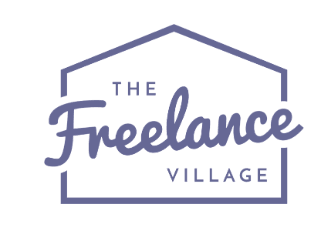We’ve all gone to the doctor one time or another and forked out mega bucks to just be told we have a virus and there’s nothing that can be done - apart from rest and fluids.
But I don’t think many of us have gone to the reception desk and said ‘look, I didn’t get a lot of value from my consult so I’m only giving you 50 per cent of the fee’.
Doctor’s don’t work like that. Their time is their time. Same as lawyers, accountants, and about every other professional service out there. So why do so many freelancers struggle to get paid their worth - or sometimes, even get paid at all?
Value vs. hourly rate
Perhaps it doesn’t help that the word ‘free’ is in the word used by individuals who work for themselves, but you don’t have to be a genius to work out that not many people will do a job without getting paid.
Where it seems a lot of businesses get caught up is that they compare their own time and hourly rate to what they will potentially be paying a professional freelancer. But what actually needs to be considered is a freelancers value. How will their work impact on your organisation, and what will the return-on-investment be?
For example, if you pay around $500 to a designer for a new logo, that initial outlay will be working for years to come - helping to build your brand, and stand out in your industry.
Or you may arrange for a writer to put together some evergreen content for your website, using their SEO skills to bring you greater search results online. Again, the work that freelancer has carried out could have the potential to bring in business that far outweighs what you actually paid for it.
Most professional freelancers are extremely adept at proving their value, because they understand that if the work they do is worthwhile, you’ll be a repeat client. And that is worth its weight in gold to someone who is self-employed.
So are freelancers expensive? Actually….
The 2017 Hays salary guide states that the average annual salary for a content writer in Auckland is $70,000 ($33.65/hour). That is someone who works in-house, full time.
And how many hours will they be working over a year? Approx 2,080. But of course four weeks are annual leave, 10 days are public holidays, and most employees are provided with five days sick leave. That is approx. 280 hours they aren’t in the office, meaning actual working hours over 365 days would be around 1,800.
But here’s where things get tricky - a freelancer won’t be billing a client for every single hour they work. This is because they are effectively running their own small business, so there are all the extra tasks like administration, marketing, onboarding new clients, chasing invoices (a lot), phoning service providers etc.
That could take up about around 25 percent of a working week, meaning they may only be charging for 1,350 hours per year.
And then of course, a freelancer has all the overheads a business does - power, phone, services, the internet, an accountant, equipment, software, a marketing budget, website hosting… the list goes on.
Remember that content writer employee that is on a $70,000 annual salary? Their real cost could actually be another 26 per cent on top of this (overhead costs from the MBIE website) - coming out closer to $90,000 a year.
So where does that leave a freelancer who has 1,350 billable hours a year, paying themselves and covering the cost of running a business for $90,000 annually?
Sitting at around $65 an hour.
But this is all relative to someone’s experience. If they are qualified, and have been working in their field for more than 10 years, then their equal in an office could be on around $90,000 a year. Don’t forget to add on that 26 percent, and you have an hourly rate of $85.
So here’s the takeaway. Don’t judge a freelancer’s rates before you understand their true value - it’s all relative.

